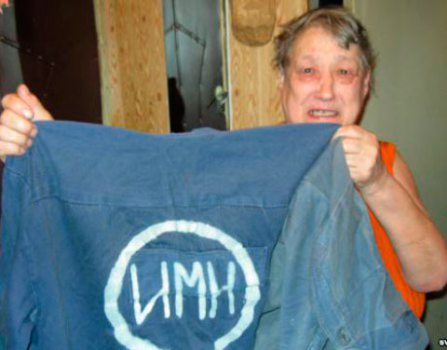Court refuses to disclose burial place to death convict’s mother
-

- A prison uniform - all that’s left of Aliaksandr Hrunou
The Homel Regional Court, who earlier sentenced local resident Aliaksandr Hrunou to death, refused to disclose the death convict’s place of burial to his mother.
Volha Hrunova has received a written ban signed by the Chairman of the Court Siarhei Shautsou. Now she is going to seek changes in the Belarusian legislation, which imposes a taboo on information about the burial site of executed prisoners, gomelspring.org reports.
“Besides that Belarus remains the only country in Europe, where people are shot in the name of the state, but also the country still uses torture, cruel, inhuman and degrading treatment towards the relatives of prisoners. Besides that they sent me, as if mocking me, these prison clothes of my executed son with the words “capital punishment” on its back, they also invented a lifetime of torture – until the end of days I will not known where he is buried, until the end of days will not be able to visit his grave,” says the grief-stricken woman.
According to Article 155 of the Criminal Executive Code, which regulates the execution of the death penalty in Belarus, the administration of the institution in which the death penalty is carried out is required to send a notice of the execution of the sentence to the court that handed it down, while the court should notify one of the family members. The body is not given for burial, the place of burial is not disclosed.
The United Nations Human Rights Committee has repeatedly criticized the country’s legislation, calling upon the state to stop torturing the relatives of executed prisoners. In the case Liubou Kavaliova and Tatsiana Kaziar versus Belarus, the UN Committee pointed out that the “complete secrecy surrounding the date of execution and place of burial, as well as the refusal to return the body for burial in accordance with the religious beliefs and customs of the family of the executed prisoner create the effect of intimidation and punishment of the family through willful abandonment them in a state of uncertainty and mental stress, which constitutes an inhuman treatment”.

